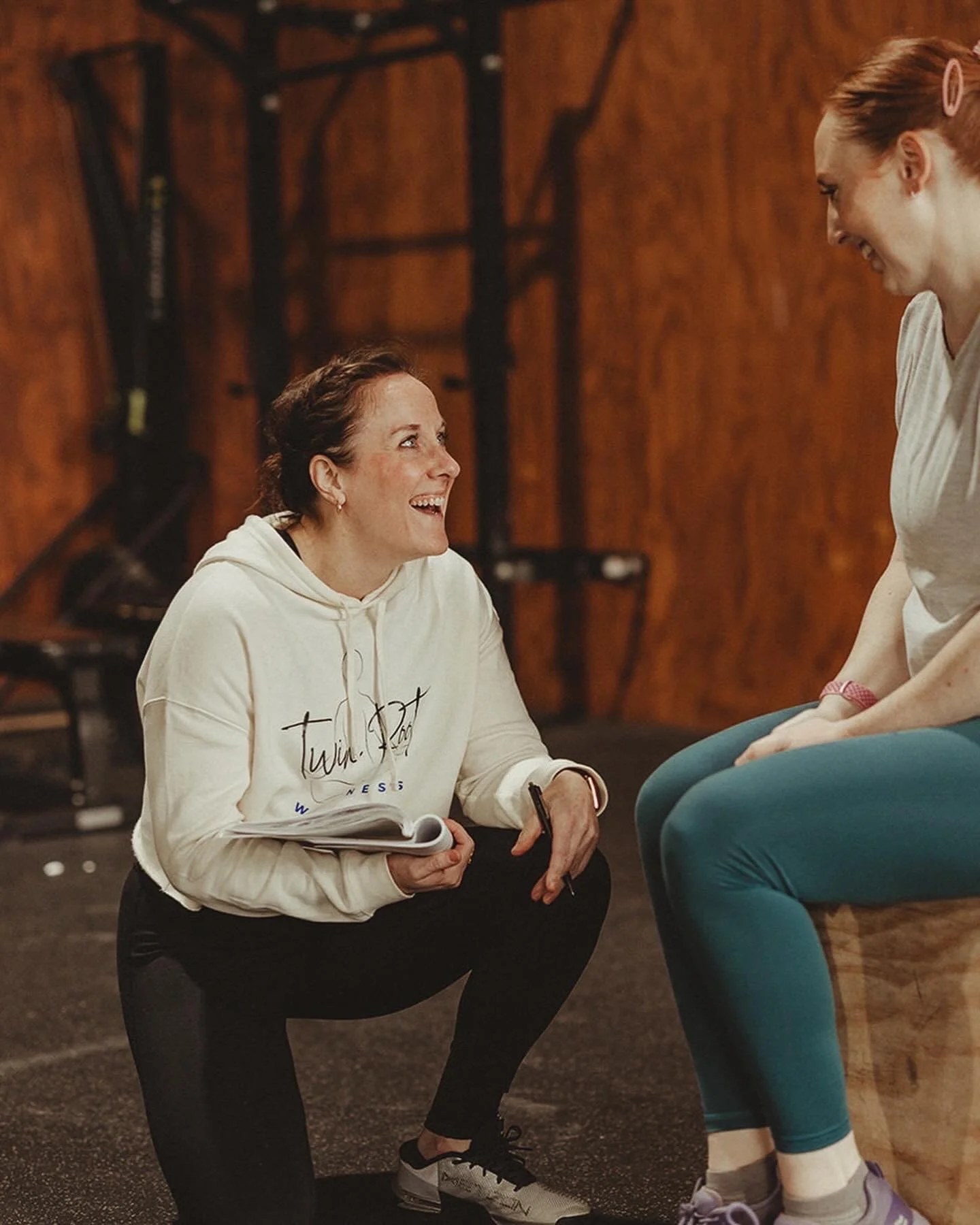Postpartum mental health support in the age of bounce-back culture
If you know anything about us, you should know that we’re here to offer postpartum mental health support as well as physical support for your postpartum fitness recovery.
We reject bounce back culture!
In case you’re living under a rock (no shame), the term “bouncing back” often refers to the pressure on new mothers to quickly return to their pre-pregnancy bodies and fitness levels.
Whether it's through social media posts, conversations with friends, or internal expectations, the idea of regaining pre-baby strength and appearance can become an overwhelming obsession for new moms.
For postpartum athletes especially, this pressure can take a toll on both physical health and mental well-being.
The harmful effects of “bounce-back” culture for postpartum fitness recovery
We’ve been there. You want to feel strong and confident in your body again after giving birth. Thatš completely natural! What isn’t natural is the idea that you need to get back to your pre-pregnancy self as fast as humanly possible. This idea isn’t only unrealistic–-it’s harmful!
Here are a few ways that “bounce-back” culture can negatively affect mental health:
Unrealistic Expectations
The pressure to achieve rapid postpartum weight loss and fitness gains often comes with unrealistic timelines. Many athletes, accustomed to performing at a high level, may feel a sense of failure if they can’t immediately return to their previous strength and stamina. This can lead to frustration, guilt, and diminished self-esteem.Comparison with Others
In our social media-driven world, it's easy to compare yourself to other postpartum mothers who seem to have effortlessly returned to their athletic routines. However, these comparisons are often based on curated images and don’t reflect the full reality of recovery. Comparing your journey to someone else’s can exacerbate feelings of inadequacy and self-doubt, leaving you feeling discouraged.Increased Anxiety and Depression
The societal expectation to “bounce back” can heighten postpartum anxiety and even contribute to postpartum depression. When new mothers feel like they aren’t meeting fitness milestones, it can lead to increased stress, feelings of isolation, and a sense of failure. This pressure compounds the already challenging physical and emotional adjustments of new motherhood.Ignoring the Body’s Need for Healing
Rushing back into intense workouts without acknowledging the body’s need for rest and recovery can have long-term physical and mental consequences. Many postpartum athletes struggle with injuries or complications like diastasis recti (abdominal separation) or pelvic floor issues. These physical challenges can be demoralizing, especially when external pressure pushes you to return to high-intensity fitness routines before you're ready.
Phew, that’s a lot.
Setting realistic, individualized fitness goals for postpartum fitness recovery
To combat the negative effects of “bouncing back” culture, it’s essential to shift the focus from quick results to a long-term, holistic approach to postpartum fitness. Here are a few ways to create a healthier mindset:
Honor Your Body’s Journey
Every postpartum body is different, and recovery timelines will vary based on individual circumstances. Instead of fixating on external measures like weight loss or appearance, celebrate your body’s strength and resilience. It carried a child for nine months, and now it’s in the process of healing. That’s a huge achievement in itself.Set Gradual, Achievable Goals
Instead of setting goals based on how quickly you want to return to your pre-pregnancy fitness level, focus on gradual progress. Break your fitness journey into manageable milestones—such as improving your mobility, increasing endurance, or rebuilding strength in small increments. Setting realistic goals reduces pressure and creates a sense of accomplishment with every step forward.Prioritize Mental Health
Mental health is just as important as physical health. Incorporate practices like mindfulness, meditation, and breath work into your fitness routine to manage stress and promote emotional balance. Seek support from professionals, whether it's a therapist, postpartum support group, or fitness coach who understands postpartum recovery.Embrace Flexibility
Finally, be kind to yourself. Some days you may feel ready to tackle a challenging CrossFit workout, and other days your body may need rest. Listen to your body’s signals and allow flexibility in your routine. Remember, fitness is a lifelong journey, and there’s no rush to meet arbitrary goals.
Prioritizing your postpartum mental health support through your postpartum fitness recovery.
The “bouncing back” narrative may be pervasive, but that doesn’t mean you need to conform to it. Instead of racing to return to your pre-pregnancy self, honor your unique journey and prioritize both your mental and physical health. By setting realistic, individualized fitness goals, you’ll not only regain your strength but also build a more sustainable and compassionate relationship with your body.
We’re here to support you through it. Twin Root Wellness offers help with creating a postpartum fitness plan–complete with modifications and adaptations–that’s unique to you and your (realistic) goals. You also get guided reflections to ensure you’re feeling motivated and confident and getting the most out of your workouts.



